Smoking Weed With Concussion — Does It Help or Harm?
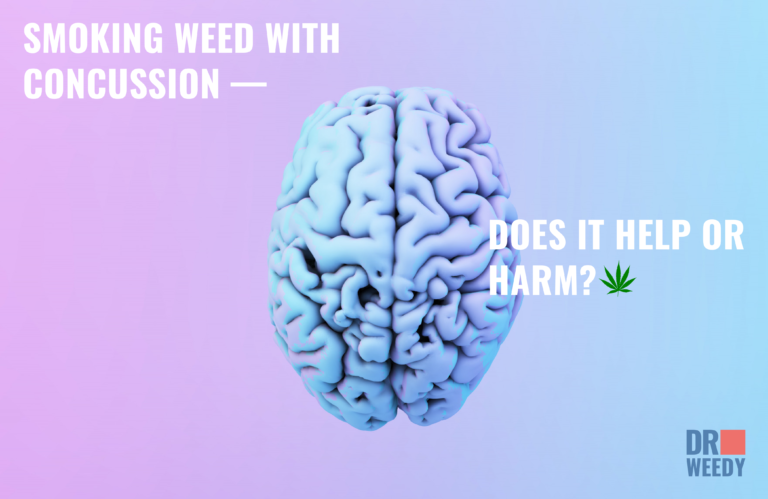
A common concussion treatment includes ice on the head, good sleep, drinking water, and rest in a calm, quiet place. Sometimes, when a headache is unbearable, medications may be prescribed or, in cases of severe concussions, constant monitoring by doctors is required. However, more and more internet users are reporting about the advantages of marijuana. Concussion can be treated with weed, they say, and we’d like to see if it’s true.
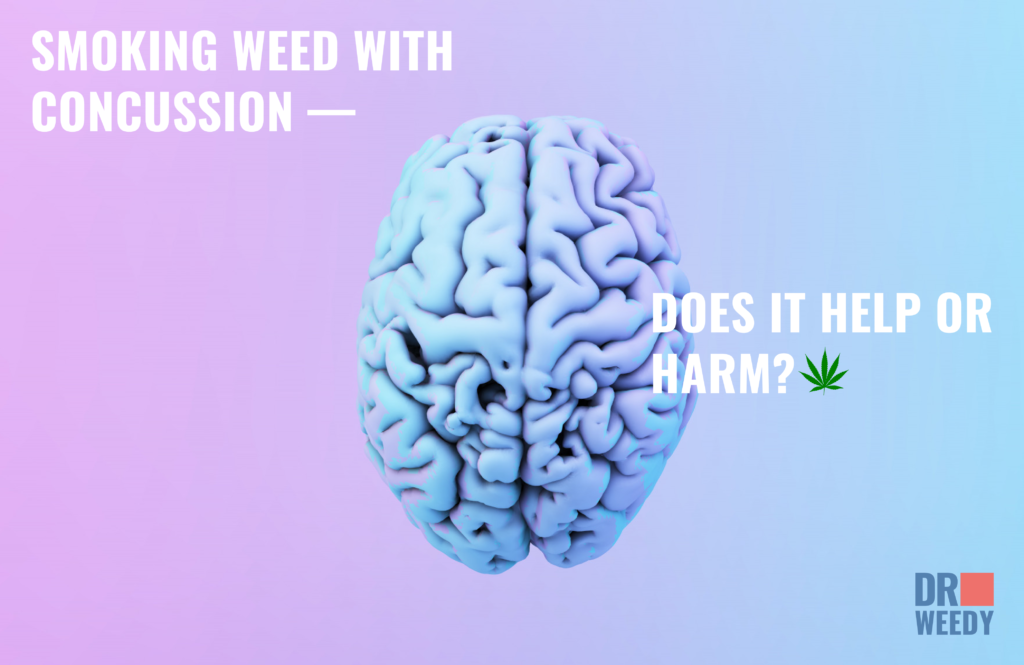
What is a concussion?
Concussions are mild traumatic brain injuries caused by external forces leading to rapid brain movement within the skull. They result in chemical changes and damage to brain cells and tissue. Common concussion symptoms include headaches, dizziness, nausea, cognitive troubles, and sensitivity to light or sound. These symptoms usually resolve within days or weeks but can persist for months as post-concussion syndrome, especially after repeated head injuries. Concussions must be taken seriously – if left untreated, their effects can compound and contribute to chronic neurological conditions like chronic traumatic encephalopathy (CTE) down the road.
Can You Smoke Marijuana With a Concussion?
People already use cannabis to alleviate the symptoms of concussions. Online reviews and reports from real marijuana users show that smoking pot can provide improvements in the following areas:
- headaches;
- sleep quality;
- mood.
This was proven by the research of the DENT Neurologic Institute (DENT), located in New York. Doctors gave small doses of marijuana to 142 examinees with concussions and observed significant improvements in wellbeing in 80% of them.
However, there are still many experts who claim that you should be very careful when smoking pot after concussion. There are some risks related to marijuana use, and the most serious is the risk of a stroke or hematoma under the skull. You don’t want it, especially after the head injury, right? This is why it is very important to know your doctor’s opinion before answering the question, “can you smoke weed with a concussion?”.
What Are the Effects of Medical Cannabis in Injured Brain
There are numerous theories about how marijuana works in the brain after concussion. CBD and THC provide the following effects:
- reduce inflammation;
- improves appetite;
- help with nausea;
- treat migraine;
- alleviate pain;
- perform antioxidant action;
- support cognitive functions after the brain trauma;
- combat depression and anxiety;
- prevent damage and death of neurons;
- prevent chronic traumatic encephalopathy, which is especially good for professional athletes.
The neuroprotective effects of marijuana have been proven by multiple scientific studies.
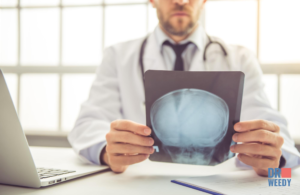
For example, Prof. Yosef Sarne from the Tel Aviv University has found that mice show significant improvements after low doses of marijuana, and suggests that weed can be an effective treatment for brain traumas, including concussion. Another research, sponsored and patented by the US government, confirmed the neuroprotective and antioxidant properties of marijuana, which makes it a promising remedy not only for concussion, but also for age-related brain ailments and strokes.
Does Weed Help Patients With Concussion?
In the USA, you can get a prescription for medical weed to treat concussion or some symptoms of the post-concussion syndrome. Mostly, surveys, clinical trials, and online reports from regular users confirm the beneficial properties of medical marijuana for people with concussions. Thus, smoking weed with a concussion seems to be a useful addition to traditional treatment, or even an effective therapy itself.
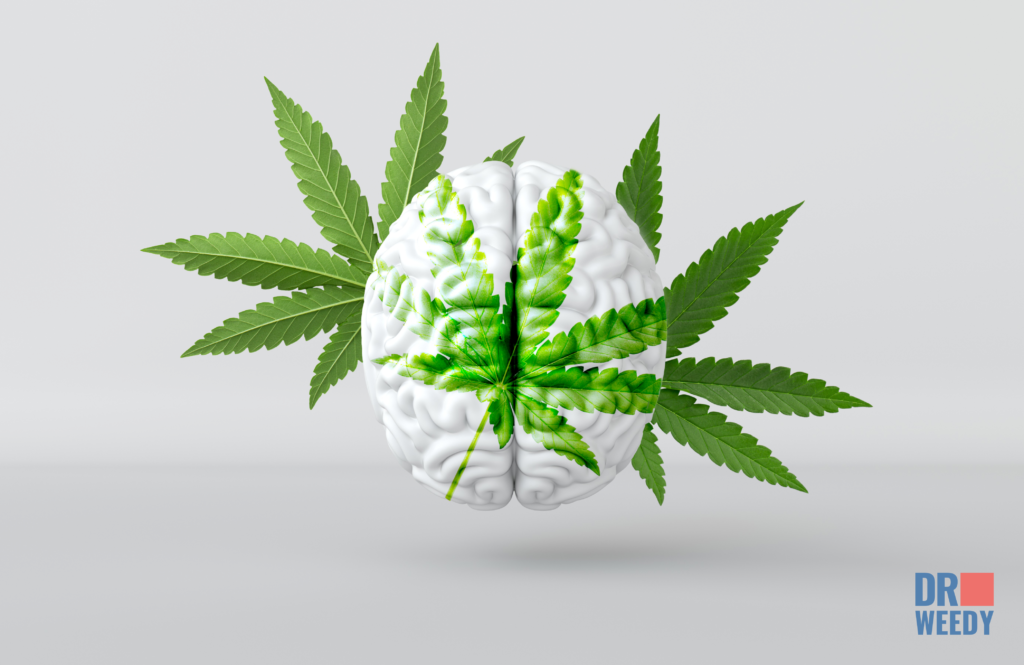
It is interesting to know that pot may protect your brain not only after the trauma, but before it, too. It appears, THC administered before the accident, saves lives! We do not know the mechanisms, but the research published in The American Surgeon in 2014 showed the relationship between marijuana and low mortality in car accidents. People who smoked pot before the accident were less likely to experience the fatal effects of the injury.
A 2023 study published in iScience investigated the effects of chronic cannabis use on athletes regularly subjected to repetitive subconcussive head impacts, such as soccer players. This study, titled ‘The modulatory role of cannabis use in subconcussive neural injury,’ involved 43 adult soccer players, divided into a cannabis-using group and a non-cannabis control group. The findings revealed that those who regularly used cannabis showed greater resilience in oculomotor function and a reduced neuroinflammatory response following repetitive head impacts compared to the non-cannabis group. Notably, the study observed that the serum neurofilament light, a marker of neural injury, increased only in the non-cannabis users after subconcussive impacts. These results suggest that chronic cannabis use may not only be beneficial in the context of traumatic brain injuries, as indicated by the 2014 research in The American Surgeon, but also in mitigating the effects of repeated subconcussive injuries.
How Marijuana Helps with TBI: A Short Explanation
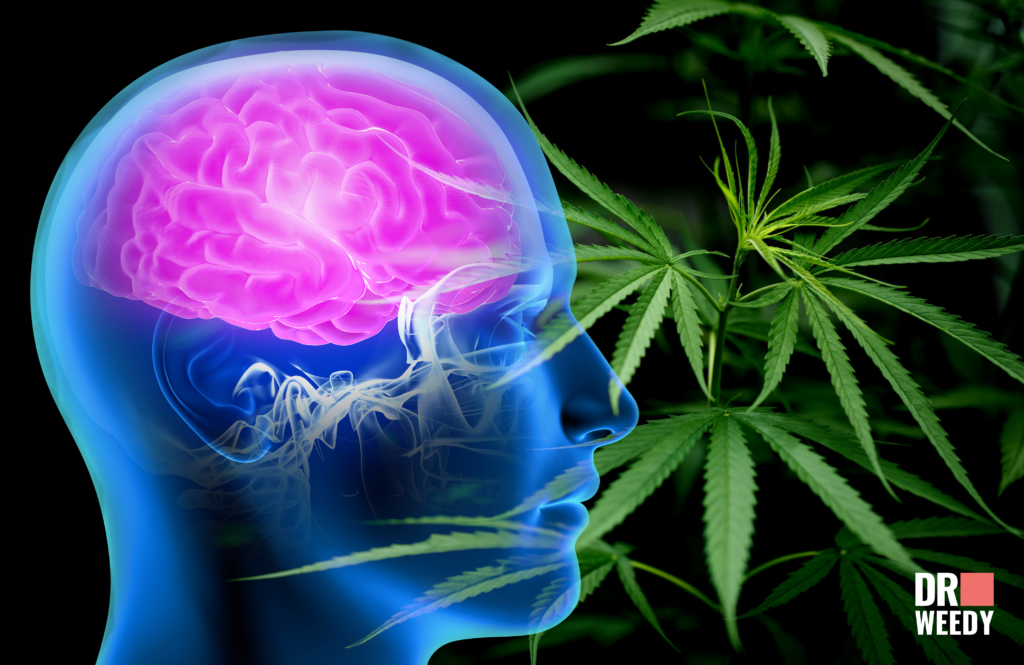
The fact is that the endocannabinoid system has the property of self-defense, so it always reacts to such large incidents as TBI and stroke. Trauma after such events causes the accumulation of harmful neurotransmitters, primarily dopamine, that cause further damage. Endogenous production of cannabinoid molecules is triggered in response to injury, and these molecules provide protection and recovery, potentially reducing damage from something like a head injury. Therefore, it turns out that weed has a more positive effect on the patient than a negative one.
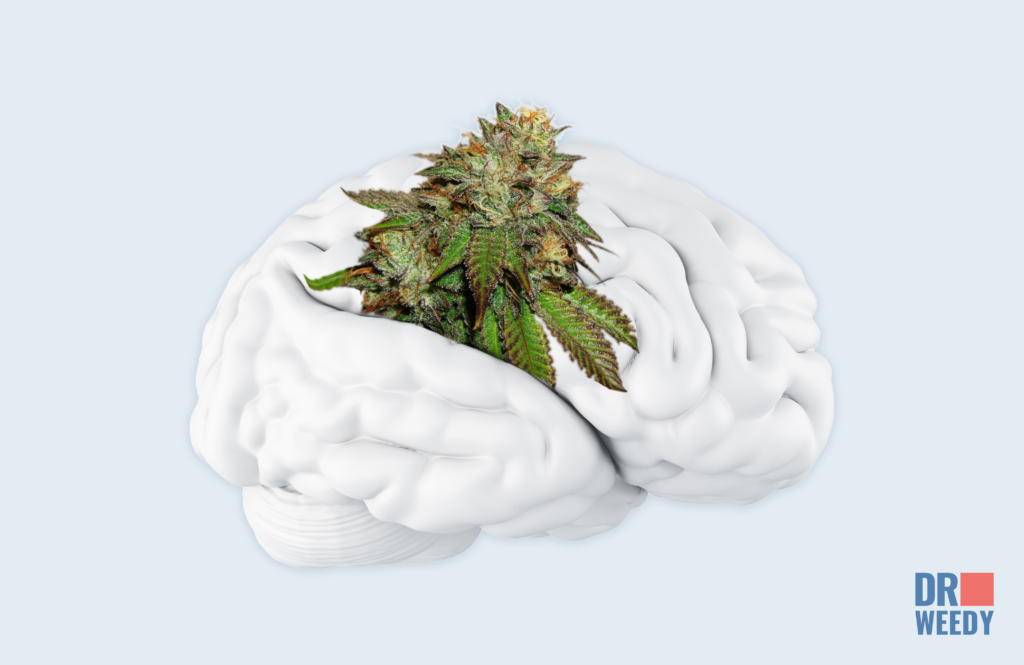
Guidance for Using Cannabis to Treat Concussions
While more research is clearly needed, preliminary findings suggest cannabis, when used judiciously under medical guidance, may provide a multifaceted treatment approach for concussions and TBI. Current best practices include:
- Consulting a cannabis-literate physician before starting use to assess potential contraindicated conditions or medications as well as optimal dosing.
- Prioritizing CBD-rich products to minimize intoxicating effects and risks while benefiting from anti-inflammatory, analgesic, anxiolytic, and neuroprotective properties.
- Starting with low doses (2-5mg THC/CBD) and increasing slowly while monitoring symptom response and side effects.
- Using complementary terpenes and avoiding pro-inflammatory compounds. For example, combining relaxing, sedative myrcene and inflammation-reducing beta-caryophyllene may enhance cannabis’ therapeutic effects.
- Being cognizant of risks like addiction or worsening symptoms and maintain open communication with one’s treatment team for guidance.
- Avoiding synthetic cannabinoids or dirty/contaminated products by verifying reputable producers and clean testing via Certificates of Analysis from a licensed dispensary.
- Trying various delivery methods – inhalation, sublingual, transdermal or suppository administration may offer faster relief than traditional edibles depending on symptoms treated.
- Tracking symptom changes, side effects, and cannabis doses closely using an app connected to one’s medical team. This allows providers to make adjustments and identify issues.
Takeaways
Is it bad to smoke weed with a concussion? We can clearly see, it is not. Smoking pot with head traumas commonly does not cause any severe adverse reactions, in fact, it is much safer than many traditional FDA approved drugs. However, self-treatment is not highly recommended. Despite the proven benefits of marijuana by several studies and surveys, in case of the brain injury you should see a doctor immediately. You can use marijuana for concussion only after the healthcare professional consultation.
FAQ:
Is it safe to use cannabis after a concussion?
More research is still needed, but preliminary findings suggest cannabis could be used safely under medical supervision. However, there are risks like increased sensitivity and worsening symptoms to consider.
Does cannabis impair cognition and memory? Won’t that interfere with concussion recovery?
High-THC varieties that produce intoxication can temporarily worsen cognitive function. However, low-THC, high-CBD formulations may support improved cognition via CBD’s anti-inflammatory and neuroprotective effects.
What type of cannabis products are best for treating concussions?
CBD-dominant formulations with minimal THC are recommended as first line to avoid intoxicating side effects. Use of complementary terpenes may also boost therapeutic effects. Different delivery methods can also be trialed under guidance.
How quickly does cannabis relieve post-concussion symptoms?
Inhaled methods like vaporizing provide the fastest relief, within minutes. Edibles and capsules take 30-90 minutes to absorb before effects manifest. Transdermal patches, gels or suppositories offer moderate onset.
Can I use cannabis to completely replace conventional post-concussion treatments?
Cannabis should be considered an adjunctive therapy for now. Don’t abruptly halt proven treatments.

























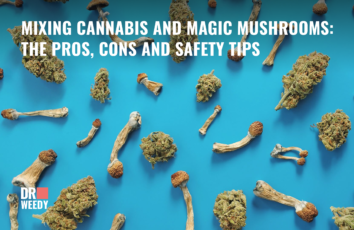
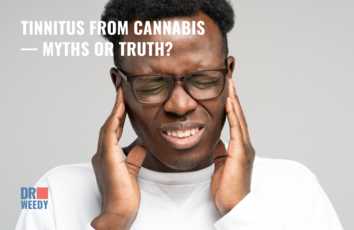

Thorough and engaging article! I appreciate how it delves into the complex relationship between cannabis use and concussion recovery. The information provided offers a fresh perspective on the potential benefits and risks of smoking weed in such situations. It’s intriguing to see how cannabis may have both positive and negative effects on the healing process, depending on individual factors. The more we learn about this topic, the better equipped we’ll be to make informed decisions.
Interesting article! It’s important to discuss topics like this, especially since the use of medical cannabis is becoming more widespread. As someone who has experienced a concussion before, I found the insights on how smoking weed might affect the healing process quite informative. However, I believe it’s crucial to consult with a healthcare professional before making any decisions regarding treatment options. Each individual’s situation is unique, so what works for one person might not be the best choice for another. Keep up the great work, Dr. Weedy!
The article is wonderful, however, I have one question and no one can really answer it. I had an injury at work a couple of years ago, after which I suffered from headaches. Until now, it seems to me that the consequences of the injury are still there, although my doctor says that everything is fine. Is it safe to use marijuana along with Ubrelvy? Will smoking weed with a concussion help or harm? Thanks!
Very helpful, thank you
Very helpful, thnks